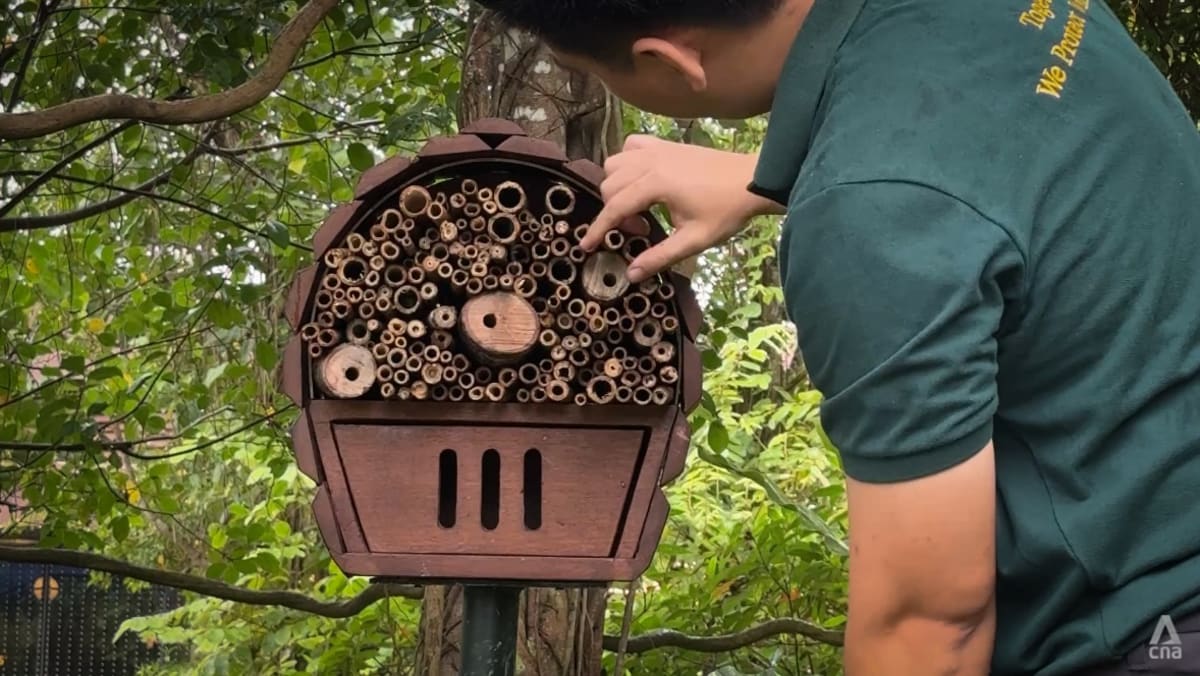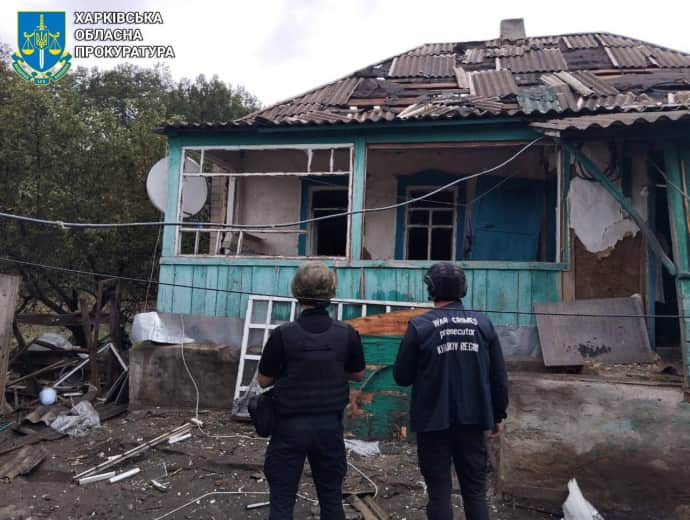
The bees play an important role in pollinating a wide range of plants, including Singapore’s native species, and can visit up to 100 species annually, said Mr Jagan Thanapal, head keeper in Mandai Wildlife Group’s animal care department.
So important are they to the ecosystem that Mandai Wildlife Group has a team dedicated to handling hives that appear.
It is part of ongoing efforts to preserve and protect key pollinators found in Mandai’s parks, starting with butterflies in 2018, and expanding to stingless bees the following year.
“Beehives are a common sight throughout our parks,” said Mr Thanapal.
“At that time, we discovered that there was a lack of expertise in relocating stingless bee hives within the Mandai Wildlife Reserve, leading to many hives being exterminated instead of relocated.”
They started building internal expertise within the team focusing on invertebrate creatures, which currently consists of eight people. They assess whether relocation is necessary whenever a hive is reported.
The team did about four relocations on average yearly between 2019 and 2023, said Mr Thanapal, who added during an interview in December that none had been done up to that point in 2024.
The stingless bees are generally not aggressive nor do they pose a threat to humans.
“Like any other animals, including humans, the bees will defend themselves if they feel threatened,” he said.
They use their mandibles to grab onto hairs, creating a nuisance by buzzing around and trying to entangle themselves in the victim’s hair, rather than stinging, because their stings are too short to be effective, he said.
Their unique nesting behaviour also means the bees set up nests on man-made structures, trees and even rocky crevices, leaving them very close to the ground and hence vulnerable in the presence of human crowds.
“The vibrations, noise or physical disturbance caused by crowds, can stress the bees,” explained Mr Thanapal.
“Additionally, if a hive is in a high-traffic area, there is a risk of accidental damage to the nest.”




